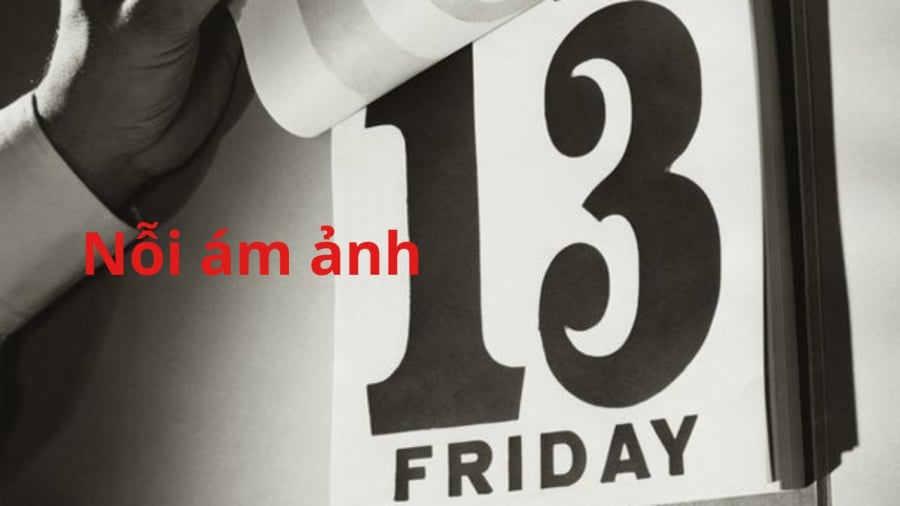Superstition and Unlucky Numbers: Unraveling the Mystery Behind Friday the 13th
Why is Friday the 13th considered unlucky?
The legend of Friday the 13th has a long history. It is viewed as a day of darkness and fear, with many avoiding it due to its perceived bad luck.
In ancient times, the number 12 was considered a perfect number, as seen in various cultural and religious contexts: 12 zodiac signs, 12 months in a year, 12 hours in a day, 12 Greek gods, and Jesus’ 12 apostles, to name a few. Therefore, the number 13 is seen as breaking this perfect pattern.
The origin of this superstition is often attributed to Christianity. During the Last Supper, there were 13 people at the table, including Jesus and his 12 apostles. The 13th guest, Judas, betrayed Jesus, leading to his arrest and crucifixion. Jesus’ execution is believed to have taken place on a Friday, thus marking Friday the 13th as an unlucky and sinful day in Christian belief.

The Fear of Friday the 13th
Additionally, according to some sources, Adam and Eve were expelled from the Garden of Eden on a Friday after eating the forbidden fruit.
Norse mythology also contributes to the fear of this date. Loki, the trickster god, collaborated with the god of darkness, Hoder, to assassinate the god of happiness, Balder, at a feast in Valhalla. Only 12 gods were invited, and Loki attended as an uninvited guest. With the death of Balder, the world was plunged into darkness and mourning.
The Taboo of 13 and Friday
The number 13 is often considered a special case and has been taboo since 1780 BC, when the famous Code of Hammurabi, created by the Babylonians, omitted a 13th law. Up to 80% of high-rise buildings skip the 13th floor. Many airports skip gate 13, and hospitals and hotels often skip room 13.
Friday, when not coinciding with the 13th day, is generally not considered unlucky. However, when Friday falls on the 13th, the superstition intensifies.
This phobia has been termed paraskavedekatriaphobia, derived from Greek words meaning “Friday,” “thirteen,” and “fear.”
Several unfortunate events in history have occurred on Friday the 13th, adding to its ominous reputation:
– On October 13, 1307, King Philip IV of France ordered the arrest and brutal torture of the Knights Templar, resulting in over 100 deaths.
– On September 13, 1940, Buckingham Palace was bombed by the Germans, with five bombs hitting the palace.
– On October 13, 1989, the U.S. stock market took a hit when UAL, the parent company of United Airlines, failed to complete a buyout.
– On January 13, 2012, the Costa Concordia cruise ship ran aground off the coast of Italy, resulting in 32 deaths. The ship’s captain was later sentenced to 16 years in prison for manslaughter.
While these events fuel the fear of Friday the 13th, they do not prove that the day is inherently unlucky. Many people believe that it is merely a coincidence, and there is no scientific basis for the superstition. Some even try to normalize the number 13 and Fridays as ordinary occurrences.
Taboos and Superstitions Associated with Friday the 13th
– Avoid passing by a funeral procession
– Do not cut your hair
– Do not go boating
– Do not start a new business or hold a grand opening
– Avoid being born on Friday the 13th (yes, some people believe this!). Do not consult horoscopes on this day.
– Do not put your name 13th on a list
– Do not change beds
– Do not travel far on Friday the 13th
– Do not cut your nails
Reference information for contemplation
“The Ancient’s Warning: Unveiling the Hidden Meanings Behind Gift-Giving Taboos”
“When it comes to wedding gifts, it’s important to steer clear of giving umbrellas as presents, as this is considered inappropriate in many cultures. It’s always best to be thoughtful and considerate when choosing a gift to avoid any potential embarrassment or negative associations. Similarly, it’s crucial to dress and present oneself appropriately at funerals, showing respect for the somber occasion.”




































